A fog of collective amnesia has enveloped China for 30 years since the events of June 4TH 1989. Tiananmen Square symbolises the existence of some 1.4 Billion Chinese citizens today as they live under bureaucratic authoritarianism.
In the aftermath of the brutal suppression of student protesters, Chinese authorities stifled free expression, extending its oversight of civilians with various tactics to censor, arrest, detain and imprison anyone who spoke about “June Fourth”.
It remains the most taboo and politically sensitive topic in China, much like the Tibetan question or Xinjiang, largely because it questioned so overtly the authority and legitimacy of the Chinese Communist Party (CCP). It’s so off-limits that even parents who lost their sons and daughters in 1989 can expect to be jailed for bringing it up.
When people think of Tiananmen Square in the West, they tend to envisage “tank man” halting the procession of tanks into the main square and an illegitimate regime that persecutes its own people. For Chinese, alternative narratives have been carefully cultivated to present “political turbulence” with images of a soldier being killed and burnt by protesters.
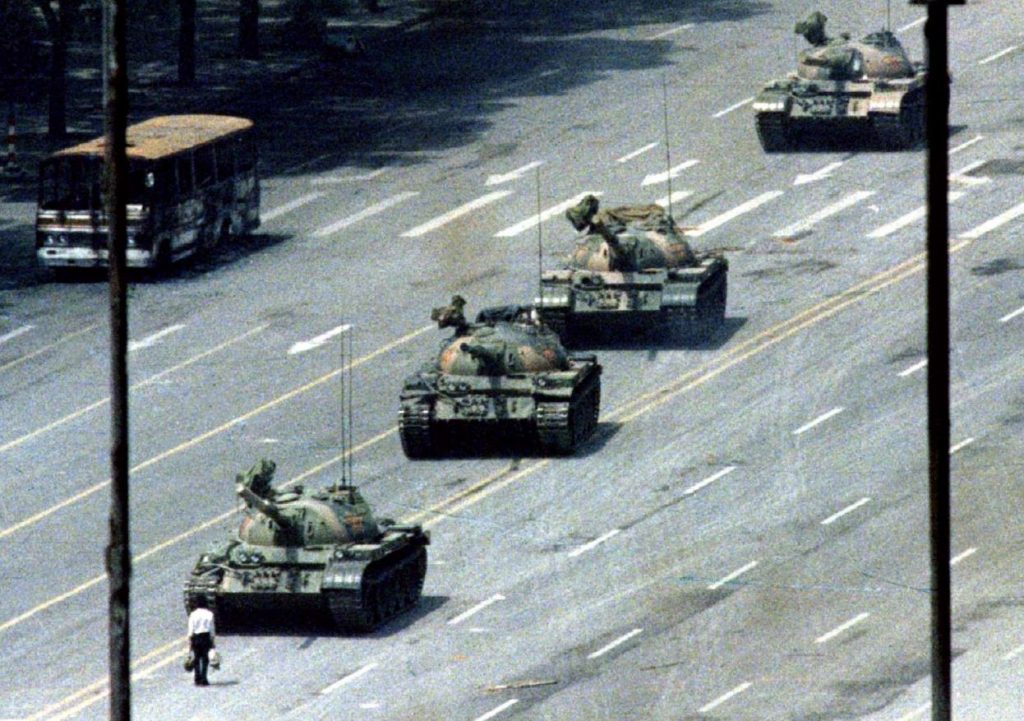
The Chinese government has tried its utmost to erase the memory from contemporary history. It has become a non-event for most young Chinese. But is it this simple?
Ahead of the 30th anniversary, international news outlets tried to tease out this censorship by approaching Chinese pedestrians with iconic photos of the protests. BBC, Deutsche Welle and others sent reporters to “test” the level of censorship.
Some ran away, some denied recognition and others did not know what they were being shown. The mainstream media then asserted China had “erased history”. The reality is far more complicated. In China, understanding is shaped by fear, opaqueness and collective wisdom. Failure to recognise the image does not necessarily mean none were aware of what happened.
Good quality journalism makes effort to contextualise questions and create safe spaces for people to speak. These reporters knew they wouldn’t get an answer, and their framing was structured to intentionally highlight that. This practice is not about Tiananmen, but conscious stylistic choice to frame ignorance.
ChinaFile became sceptical about the success of the censorship, creating an open call for personal accounts of “how you learned about Tiananmen.” They had many young Chinese tell them about their experience of cognitive dissonance and how collective memory whispered itself into awareness, despite a deafening silence.
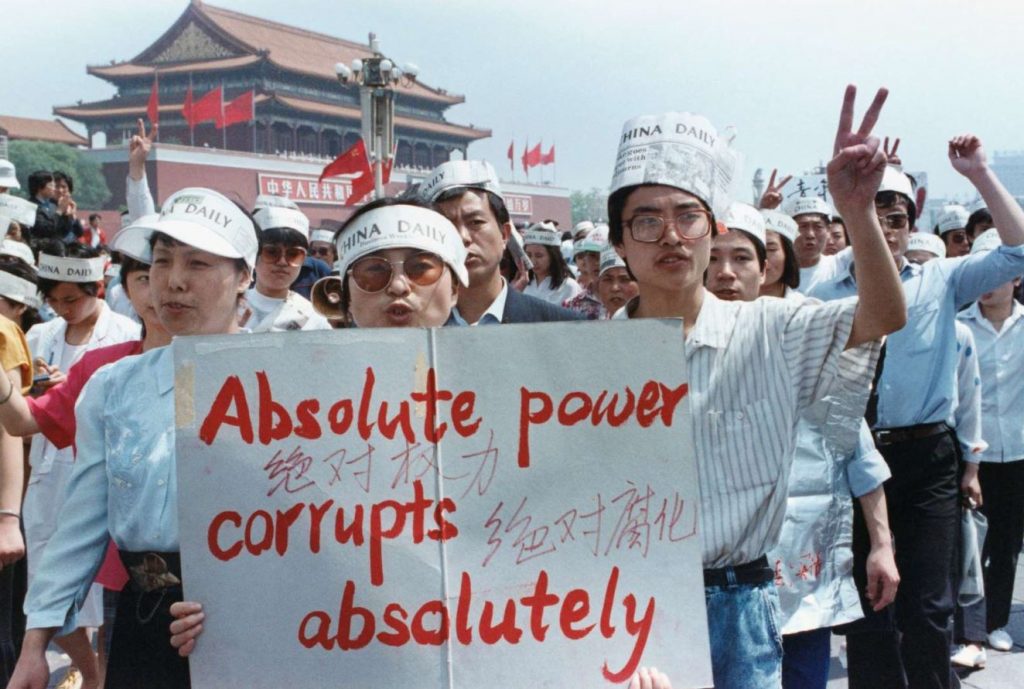
While everything that should be said about Tiananmen already has, it may never be heard by the people who need to hear it most – namely, those living under CCP rule. The CCP has not been able to wipe the memories of millions, contrary to how western news outlets reported.
Chinese official narratives ignore the fact that every major Chinese city had protests, with more than a million calling for democratic reform, an end to government corruption and a better-functioning economy. This lasted for 6-weeks as part of a unified pro-democracy movement worldwide.
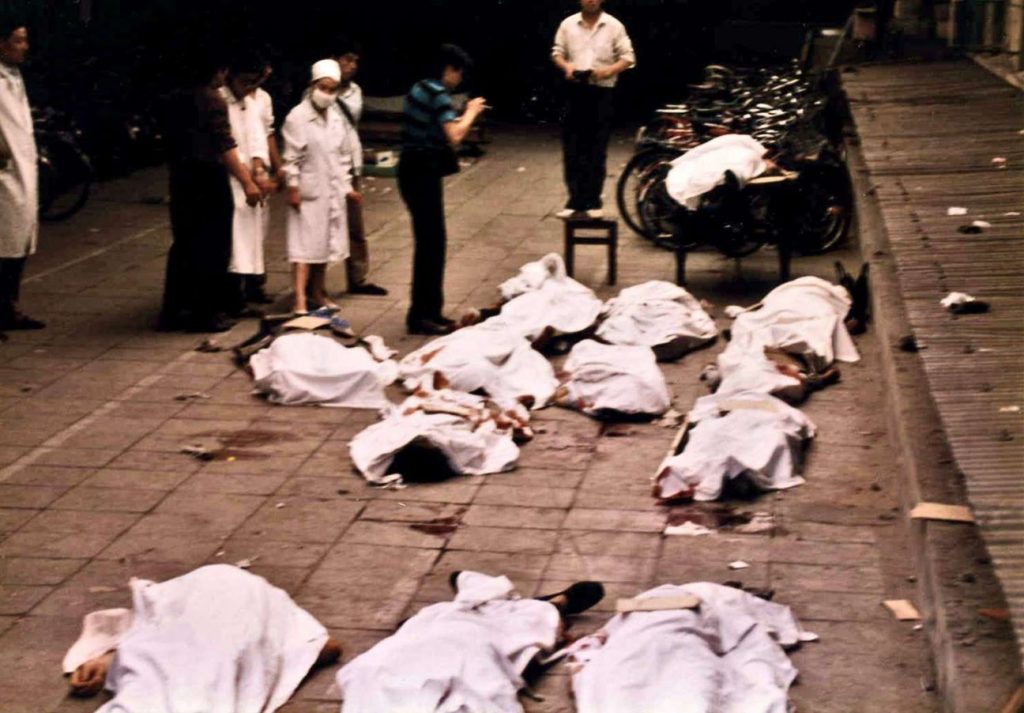
In its counter-narrative of “political turbulence”, the official Party line was a crackdown for a single-day-event known only as “June Fourth”. There was no “tank man” photo. In its stead, state media displayed the soldier who was killed and burned by “rioters”.
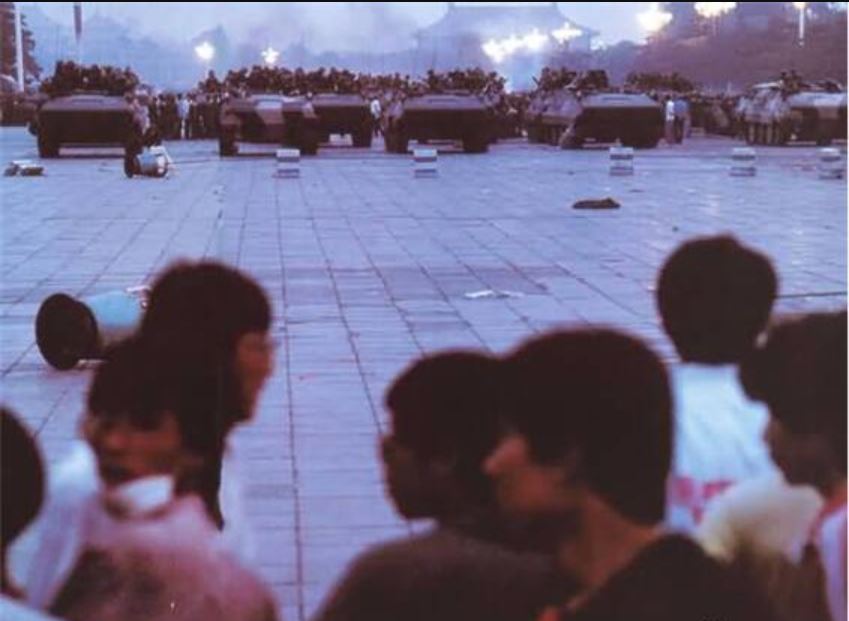
The Chinese Spring
Before June Fourth, people were free to read, discuss ideas and interact with foreigners. Robert Daly, former US diplomat to China, said it was a “highly idealistic period as Chinese people got to follow the rest of the world and recover from the Maoist period.”
Post 1989 Crackdown
The Chinese government persecuted and suppressed anyone who stood in their way after June Fourth, entrenching their authority through an uneasy status quo of economic prosperity mired by fear.
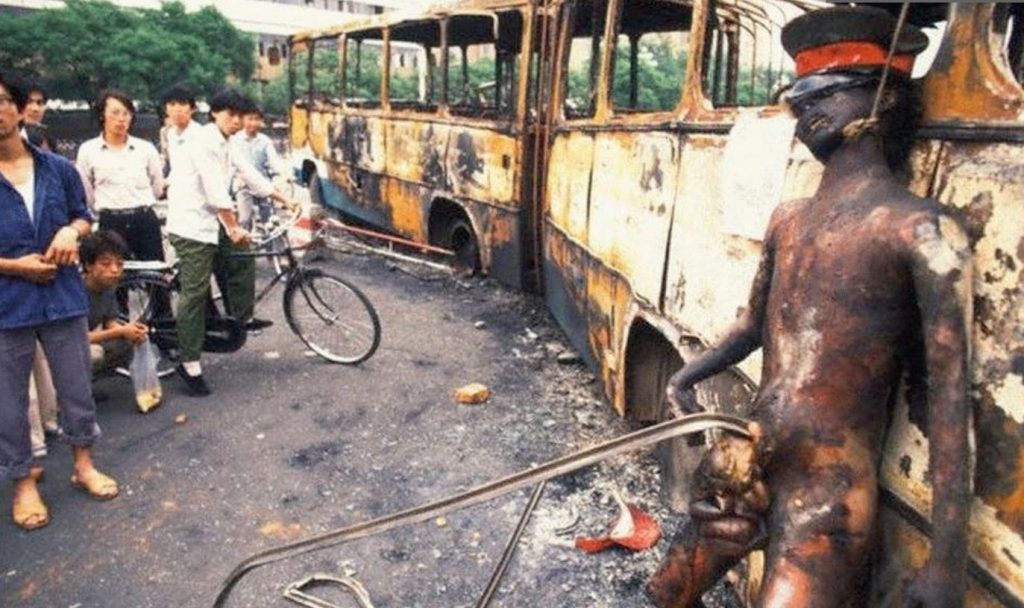
1994 saw the CCP role out “Patriotic Education”, culling collective memory, painting China a historically aggrieved nation still under siege from external foes, and the Party its heroic saviour and rightful guardian. A true Orwellian nightmare had begun, unbeknownst to its unsuspecting citizens, “patriotic education” was the Party’s solution to its crisis of legitimacy after the Mao-era disasters and the bloodshed of 1989.
University of Denver’s Zhao’s commentary on the patriotic education campaign, declared it a “very successful social and political engineering” that has repositioned the government as the defender of the Chinese nation. “In fact, nationalism is stronger than communism for the Chinese working class. It’s stronger than capitalism for the bankers. It’s so powerful a force in the 21st Century.” The anti-Japanese marches in 2012 in 80 cities throughout China are testimony of the CCP’s success to wipe a clean slate of their misgivings, by directing anger out of China, rather than within.
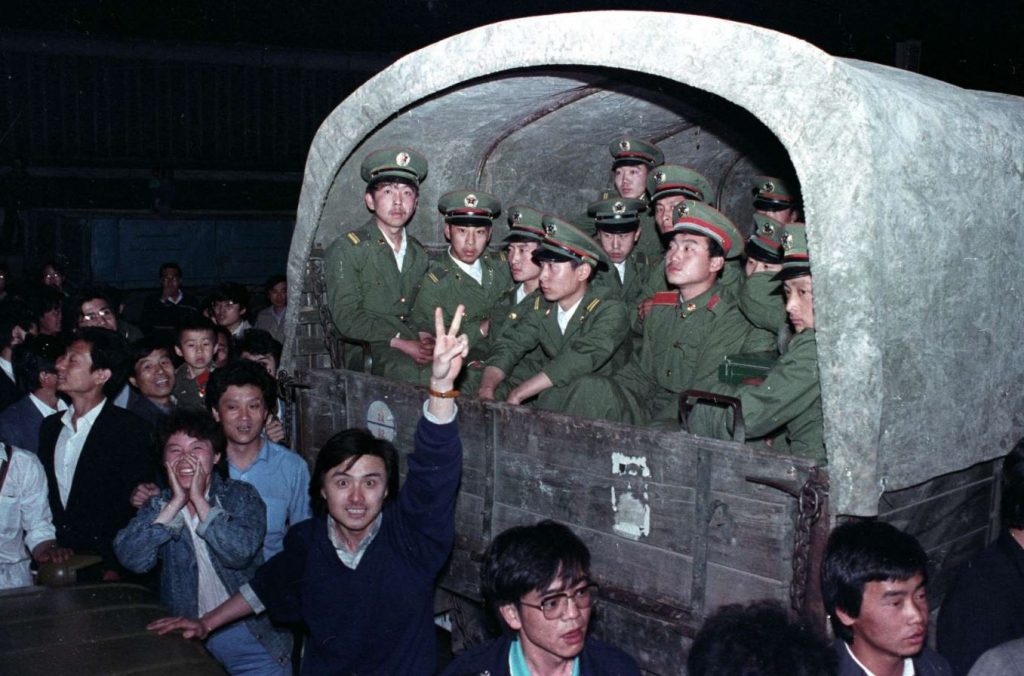
China today has all media under state control. There have been no real elections for 70 years. It is not in the interests of the communist party to reveal the truth. We should be under no illusions how close the protesters were to compromising Mao’s legacy. The nationwide support the movement garnered shook the CCP to its core. Moderate leaders like Zho Ziyang were ousted and intimidating the protesters by sending in the army and tanks was ineffective because the protesters offered the soldiers food, water and flowers. They tried to reason with them and in reciprocation, the soldiers were sympathetic to the protesters.
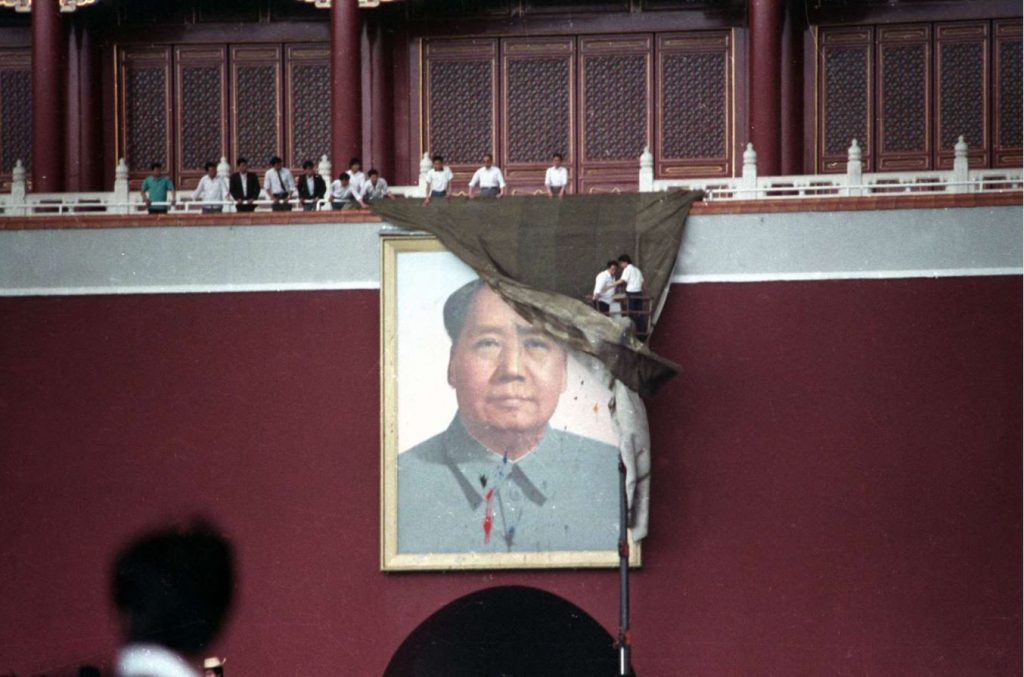
When all else failed, the CCP had to send in soldiers from faraway bases to “clear” the protesters. The protesters were, by and large, unarmed. The students wanted the government to tackle rampant corruption and deliver more political freedom. While western media presents the death toll to be in the thousands, the Chinese government said it was in the hundreds. The truth often is somewhere in between. Many more were persecuted, imprisoned and executed later. Lee Pen and Deng Xiaoping were ruthless. Human life did not have much intrinsic value in Chinese society after Chairman Mao’s leadership.
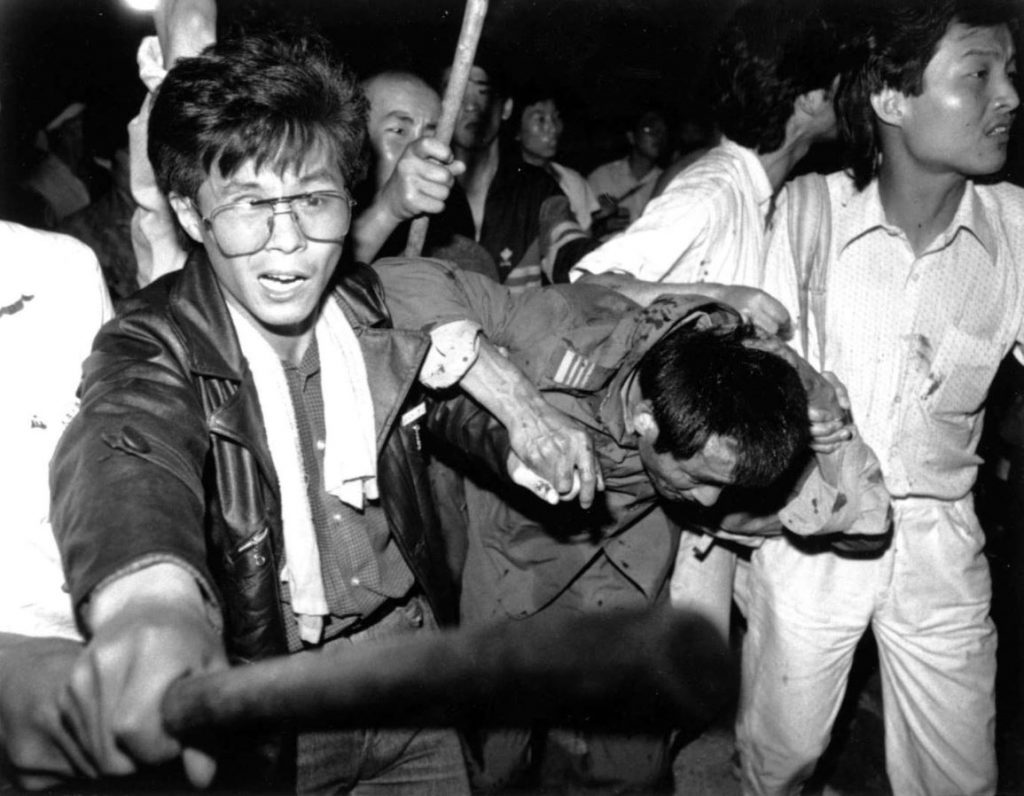
In the aftermath, the blackout of media coverage in China and the disappearance of many protestors led to an unspoken and uneasy truce. Political and social rights were to remain diminished in exchange for economic growth to preserve the Chinese way of life against outside interests.
The CCP declared democratic elections and campaigning to be inefficient Western constructs that divert resources from developing the economy to bureaucracy. Their existence relies on this basic premise of developing the economy and share the success so people won’t ask for political reform. So far so good.
Cultural memory not wiped, but a people living in fear
Some Chinese were able to circumvent the Great Firewall with VPNs, others via private family stories or friends explaining why Weibo posts need “manual review”.
The government has scripted language about June Fourth, censored mentions in media and textbooks. It should not have been surprising that those Chinese pedestrians were worried they would face retribution after appearing on international TV. After all, Xiao Bin was sentenced to 10 years in a labour camp for telling ABC News, thousands had died June Fourth.
Regardless of the excuses made by western media that the pedestrians they interviewed would not be persecuted, how would we ever know? China is increasingly tightening its grip on all aspects of society. Regardless of pedestrian comment or silence, to appear in a foreign media interview about June Fourth may set them up for surveillance or harassment.
The biased reporting shows what was already presumed: censorship and surveillance are effective tools for authoritarian leaders, leading to eye-capturing headlines for their western audiences.
New generations of Chinese writers who ventured abroad have opened up on events like Xinjiang, Tibet, and June Fourth in a second language, bridging the gap between the different perspectives. Many are eager to move beyond simplistic and repetitive descriptions of Chinese authoritarianism.
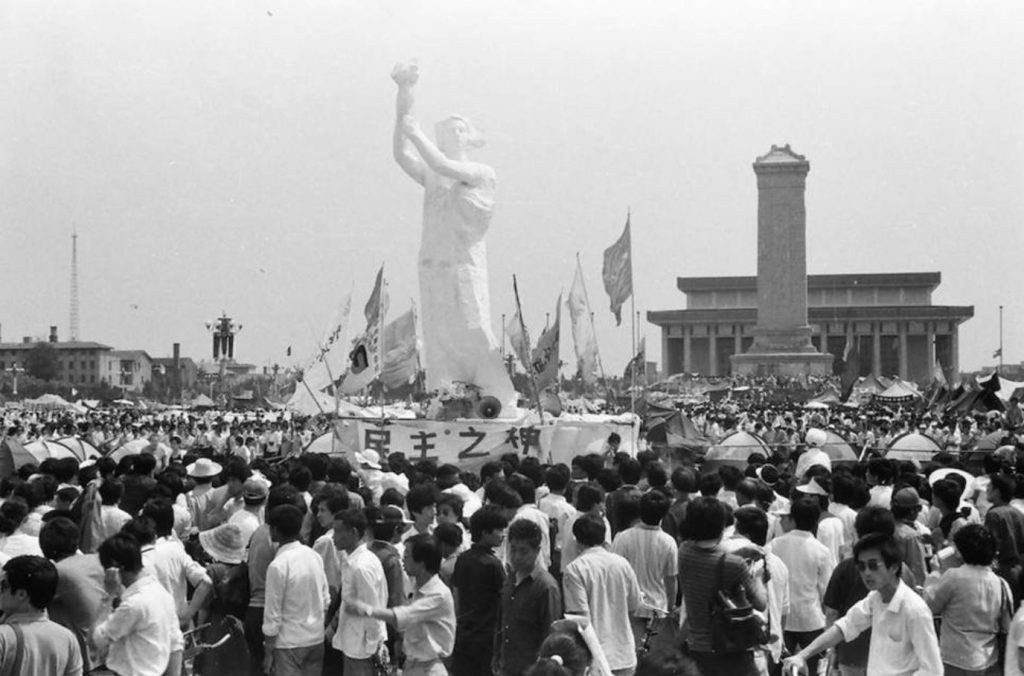
They challenge the world to look deeper, ask uncomfortable questions and move forward.
The CCP’s Party-centric metaphysical view of reality: reality does not exist except in the collective and immortal mind of the Party such that mutability of the past leads to control of the present, could come straight from 1984.
What appears on the surface to be blind acceptance is actually rule by fear and coercion.
From the moment that first bullet was fired 30 years ago, the Chinese Communist Party’s regime’s legitimacy was compromised. Nothing can change that. Deploying violence to supplant dialogue, justifying the deaths of innocent civilians as collateral; no matter how expansive and encompassing the propaganda machine and infiltration, the people of China should take refuge in the knowledge that this too shall pass.
As Tolstoy noted, it takes only a single act of courage from one free thinking individual to create a ripple that becomes a tidal wave. The message of liberty carries universal appeal, and we should stand together against government attempts at oppression no matter where they happen to be. As the million civilians of Hong Kong are out in the streets protesting new Chinese extradition laws being pushed through, the world should not turn a blind eye to these small states, but stand resolute against tyranny and oppression in all its manifestations.


